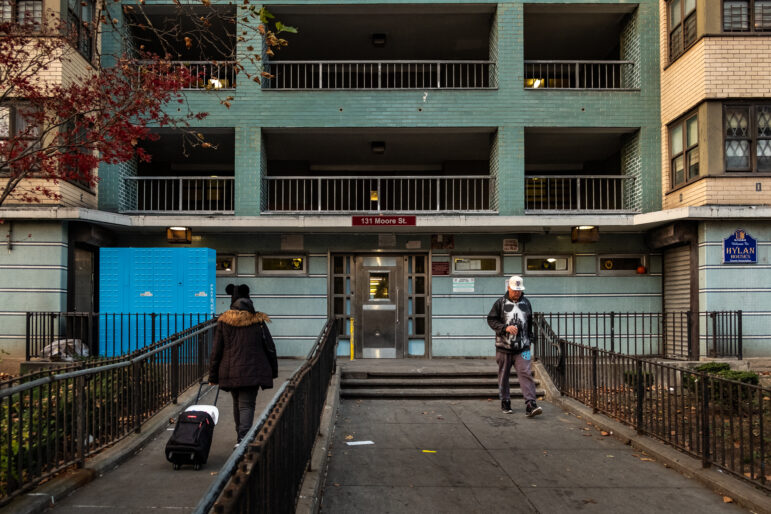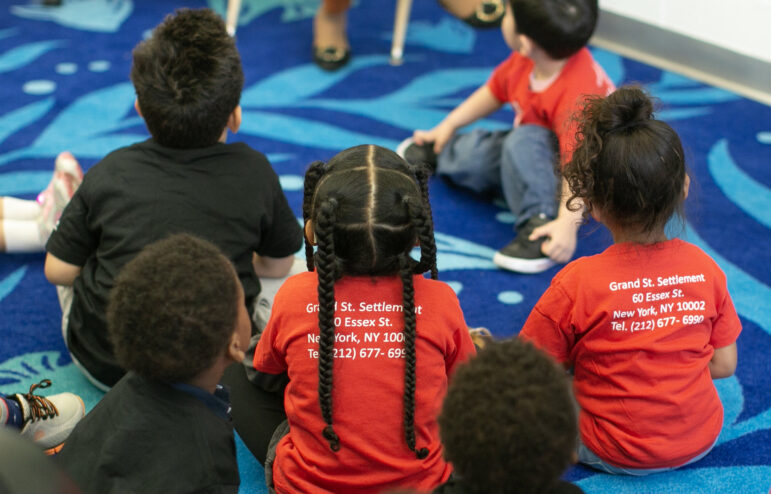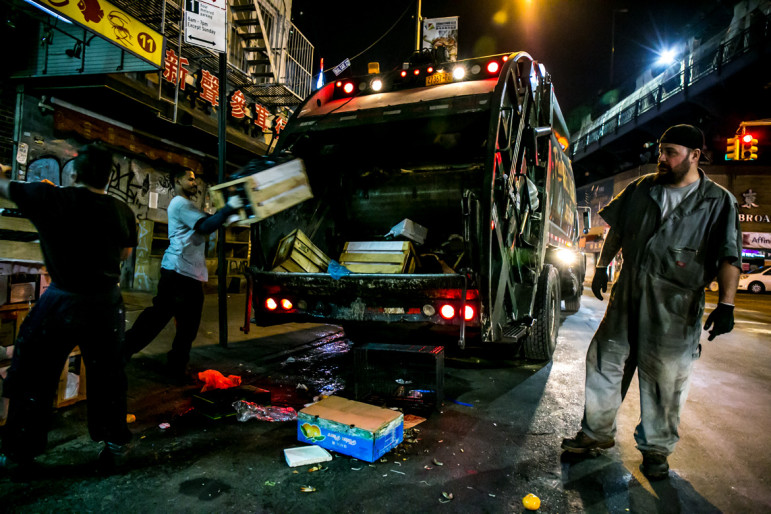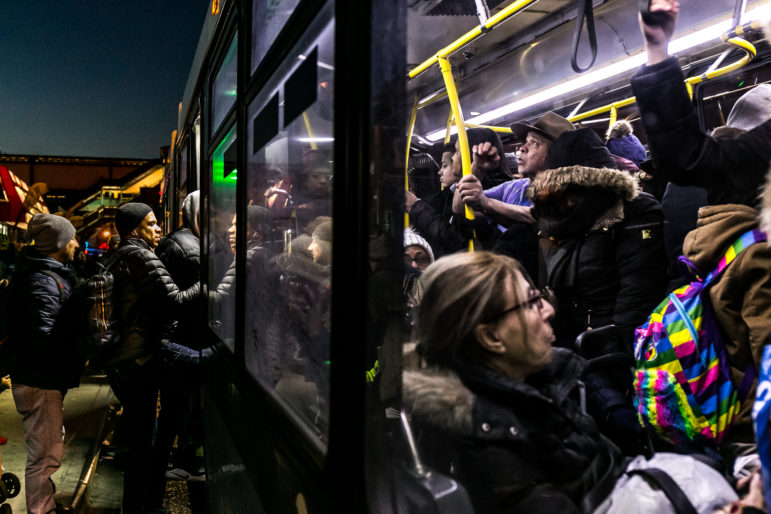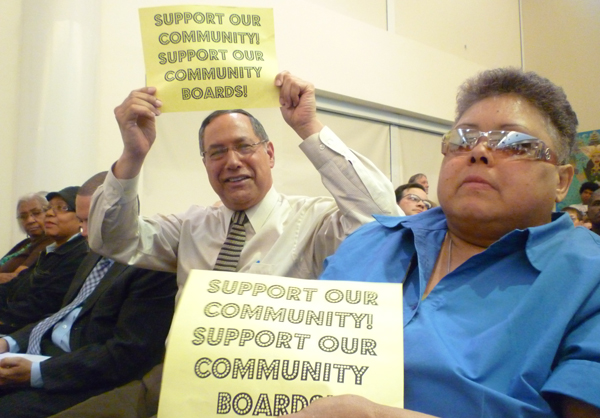
Photo by: Jarrett Murphy
At one of the first charter revision hearings in April, supporters of community boards called for more independence and authority. But the current review of the charter may not have enough time to explore that topic.
Since its short life began in March, the city’s Charter Revision Commission has labored under the criticism that it was little more than a 15-member rubber stamp for Mayor Bloomberg’s vision of how—and how not—to change New York’s 400-page municipal constitution.
At a meeting on Monday evening, however, commissioners expressed open disagreement, pushed to discuss a broader set of issues than chair Matthew Goldstein recommended and sharply criticized the report prepared by the commission’s own staff.
“This is not a report that I had anything to do with,” said Brooklyn commissioner Carlo Scissura.
That preliminary report, released last Friday, pared down the broad discussion at the commission’s first 12 meetings to a short list of topics for final consideration. Gone was any real discussion of higher profiles for community boards, larger roles for borough presidents, independent budgets for the public advocate, nonpartisan elections or alterations to the city’s land use process.
Instead, the staff recommended the commission consider modifying term limits, implementing “instant runoff” voting and a hot of other minor changes.
“There is much we want to discuss but we just do not have the time,” said Goldstein, the chancellor of the City University of New York. “Looking at this in a much more expansive way is wrong.”
But some on the commission seem intent on a wider scope. “The fact that the conversation on borough presidents and community boards warrants two paragraphs is very disrespectful to communities,” Scissura said. “If that is not changed I will not vote for anything this commission does. I’m embarrassed.”
The report and the meeting itself were meant to chart a course for what is likely to be the final leg of the commission’s work: A set of six or seven hearings in July and August to determine what charter changes should be put to the voters in November.
There will be five public hearings followed by one or two meetings at which commissioners discuss among themselves the language of the proposals they will place on the ballot. In order to make this fall’s election, the ballot language must be ready by early September.
From the outset, critics of the commission have urged it to aim for a later election, perhaps in 2011 or 2012, to provide more time for considering the more complex parts of the charter, which sets out election rules, land use procedure, the division of political power in the city and virtually every other aspect of how America’s largest city is run.
Indeed, on Monday Commissioner David Chen questioned the race to November 2010. “Why are we running out of time?” he asked.
Still, most commissioners accepted that this coming November is their target. But even on areas where there was broad agreement—like placing a term limits question on the ballot—there were divergent views on how to frame the issue for voters.
The staff recommended considering two systems: one a return to a two-term limit for all city officeholders, the other a hybrid of the current and former system with two terms for city- and borough-wide officials and three terms for members of the City Council.
Some commission members who oppose term limits wondered if the voters should have a third option—to scrap them altogether—among the choices. “There is a large, philosophical question about term limits,” asked commissioner Hope Cohen of Manhattan. “Do voters want to handcuff themselves?”
There was also disagreement on whether to prevent future changes to the term limits rules—which were imposed by referendum in 1993, confirmed in a 1996 vote and overturned by the mayor and Council in 2008. The commission’s staff has proposed restricting the council from making changes to term limits that benefit current officeholders. Some commissioners wanted a more comprehensive ban on changing term limits. But for Staten Island’s Stephen Fiala, any further restrictions on the Council would be “a dangerous thing to do.” After quoting from Federalist 51 on the meaning of the Republic, Fiala warned darkly: “We are losing sight of who we are as a people and what made us great as a nation.”
The staff’s inclusion of instant-runoff voting, which was barely mentioned at earlier hearings, and its omission of nonpartisan elections, which attracted dozens of supporters to every commission event so far, puzzled the commission.
Goldstein referred to the staff report as a “living document” that would be amended during coming weeks. Commissioner brought to the table a host of other issues for consideration, like placing lobbying oversight under the Campaign Finance Board, giving the Conflict of Interest Board a guaranteed budget, eliminating “lulus” (extra pay for committee work) at the City Council.
But commissioners seemed to back Goldstein on foregoing a discussion of land use policies, which many saw as too complex a topic to fully grasp in the remaining weeks, even if the need for change was obvious to the chair. “The one thing that clearly jumps off the page is a cry for more local voices,” Goldstein said of the land use discussion at earlier commission hearings.
Goldstein mentioned the possibility that the mayor will reappoint this commission or install a new one to take up other issues after the 2010 vote. “We have the ability to lay the groundwork—pave the road—for future commissions.” But it’s not clear that the mayor will set up another commission.


